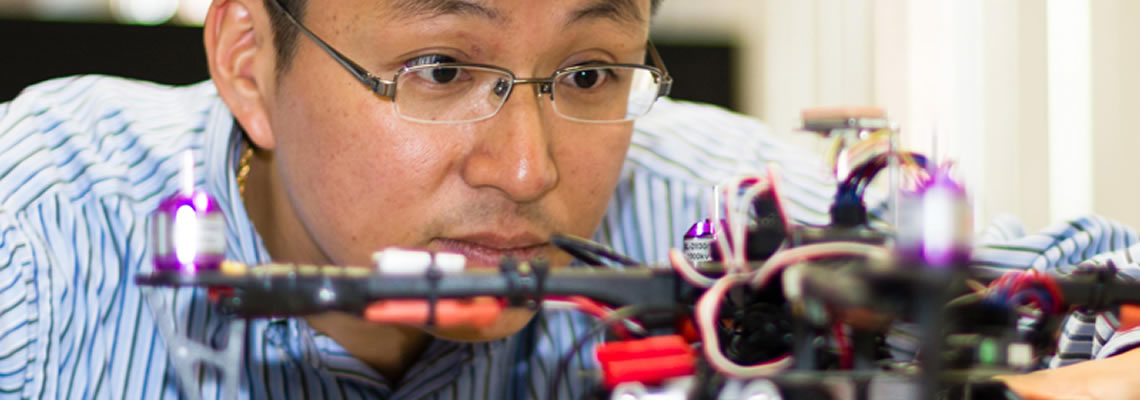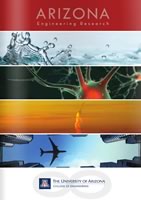Solutions for Doing Good
Taking on today’s pressing challenges – intractable and emerging diseases, cybersecurity, aging infrastructures, big data management, and natural resources conservation, for example – requires expertise from many disciplines. So we focus our research on far-reaching, interdisciplinary team projects and connect our capabilities to the issues that most need our attention.
UA College of Engineering faculty and graduate students, and many undergraduates, are collaborating with researchers across the University of Arizona and around the globe on projects that improve quality of life.
Our research portfolio includes 100 projects with an annual expenditure of $32 million. Major sources of funding include NASA, the Department of Defense, Department of Energy, National Institutes of Health, and the National Science Foundation. Among funders from private industry are Raytheon, Honeywell, Boeing, Texas Instruments, Edmund Optics, Ventana Medical Systems and Tucson Electric Power.

Focus Areas
- Sustainability and Infrastructure – water treatment and reuse, bioremediation, biofuels and renewables, energy efficiency and storage, autonomous systems, traffic and transit systems, cost estimation, data management, infrastructure networks
- Biomedical Systems and Devices – sensors, imaging, biomaterials, wearable devices, mobile diagnostics and testing
- Defense and Homeland Security – explosives detection, active flow control for air and space flight, robotics, cybersecurity, wireless communication, space object behavioral sciences
- Advanced Manufacturing and Materials – materials testing in extreme environments, nanotechnology and metamaterials design, computational modeling to predict properties and build stronger materials, mining logistics

Graduate Programs at UA ENGR
Wearable Innovations
Science in Seconds: The ACTIVATE Project
Bioelectronics: Erin Ratcliff
To request a transcript or a captioned version of this audio material as a disability-related accommodation, please contact engr.marcom@arizona.edu.
Featured Projects

Ushering in Hypersonic Flight
With $10 million in combined state and federal funding, a research team led by aerospace and mechanical engineers Alex Craig and Jesse Little is strengthening the university’s position as an academic leader in hypersonic research.

Building the Quantum Internet
Bane Vasić, Zheshen Zhang and Quntao Zhuang are part of the University of Arizona-led Center for Quantum Networks, a $26 million effort to lay the foundation of a quantum internet that will revolutionize how humankind computes, communicates and sense.

Detecting Early-Stage Cancer
Biomedical engineering professor and BIO5 Institute Director Jennifer Barton has created a specialized endoscope to image the fallopian tubes and detect ovarian cancer in its earliest stages. The device, whose small size and high resolution are unprecedented, is being used in a pilot human trial.

Protecting Bone Health
Biomedical engineering researcher Philipp Gutruf and his team have developed an ultra-thin wireless device that grows to the surface of the bone, and which could someday help physicians monitor bone health and healing over long periods.

Ensuring Accuracy in 3D-Printed Jet Engine Parts
With $750,000 from NASA, Mohammed Shafae of systems and industrial engineering and Andrew Wessman of materials science and engineering are developing a process for mitigating and preventing defects in additively manufactured metal components used in extreme environments.

Rolling Out More Efficient Solar
Chemical and environmental engineering researcher Adam Printz specializes in perovskites, materials that can be printed on flexible sheets of plastic the same way newspapers are printed. They could make it possible to produce highly efficient, ultra-thin, rollable solar cells.

Improving Drug Delivery
Biomedical engineering and materials science and engineering researcher Minkyu Kim is creating drug delivery vehicles that bypass the body’s natural filters by masquerading as red blood cells. His work is expected to usher in more efficient treatments for diseases such as cancer and multiple sclerosis.

3D-Printing Personalized Wearables
Biomedical engineering professor Philipp Gutruf and his team are 3D printing flexible, customizable wearable sensors. The biosymbiotic devices can also operate continuously, and could help speed up disease diagnosis, improve drug testing methods and measure the progress of medical conditions.
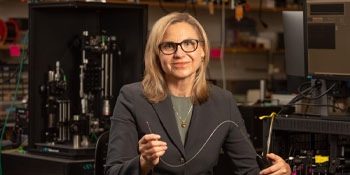
Detecting Early-Stage Cancer
Biomedical engineering professor and BIO5 Institute Director Jennifer Barton has created a specialized endoscope to image the fallopian tubes and detect ovarian cancer in its earliest stages. The device, whose small size and high resolution are unprecedented, is being used in a pilot human trial.
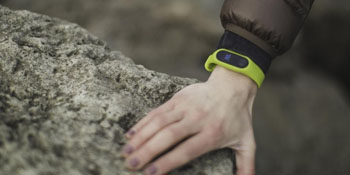
Advancing At-Home Health Care
Electrical and computer engineering professor Janet Roveda is leading a National Science Foundation Industry-University Cooperative Research Center focused on advancing clinically validated wearable devices. They could help physicians remotely monitor and care for patients.
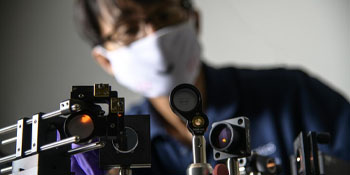
Fighting Vision Loss in Rural Communities
Biomedical engineering and optical sciences professor DK Kang is developing a portable confocal microscope to diagnose and treat corneal ulcers. His method is eight times less expensive and 20 times faster than today’s gold standard.
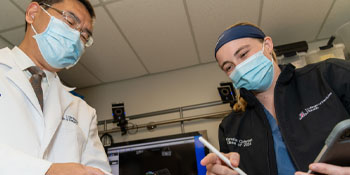
Offering Non-Surgical Relief
Biomedical engineering professor Zong-Ming Li researches the biomechanics behind the human hand and wrist. He received the 2022 Savio L-Y Woo Translational Biomechanics Medal from the American Society of Mechanical Engineers for his work developing non-surgical treatments for carpal tunnel syndrome.
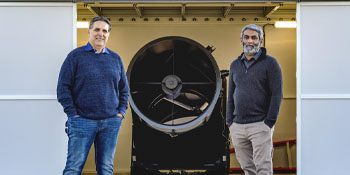
Preventing Lunar Traffic Jams
Systems and industrial engineering researcher Ricardo Valerdi and Lunar and Planetary Laboratory collaborator Vishnu Reddy are developing ways to detect, characterize and track objects in cislunar space. The work is supported by $7.5 million from the Air Force Research Laboratory’s Space Vehicles Directorate.
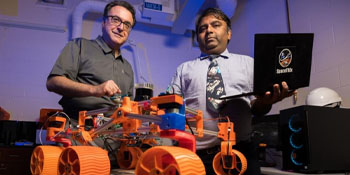
Mining the Moon With Robot Swarms
Mining and geological engineering interim department head Moe Momayez and aerospace and mechanical engineering researcher Jekan Thanga are designing a swarm of autonomous robots that specialize in space mining and construction, freeing up astronauts to do more interesting tasks.
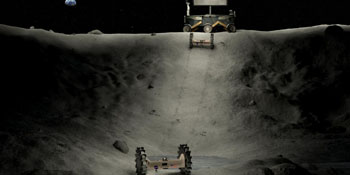
Growing Space Crops
Biosystems engineering professor Murat Kacira is leading the team behind the Prototype Lunar/Mars Greenhouse, a project to advance growing produce in space. Discovering how crops behave in zero-gravity is key to learning how to produce fresh food for astronauts on long missions.
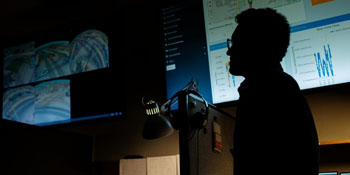
Rethinking Transportation Management
Yao Jan Wu of civil and architectural engineering and engineering mechanics is leading the Center for Applied Transportation Sciences, which brings together government, industry and academia to improve traffic and transportation systems, with a focus on smart cities.
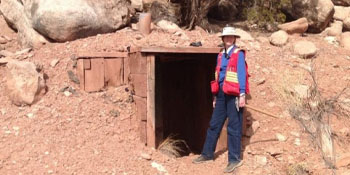
Mining Sustainably
Mining and geological engineering researcher and geometallurgist Isabel Barton is working to make mining processes more efficient by breaking down siloes between geologists, experts in ore deposits, and metallurgists, experts in metal extraction.
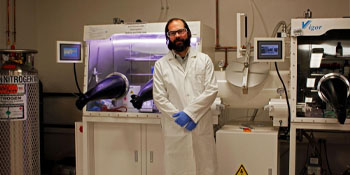
Rolling Out More Efficient Solar
Chemical and environmental engineering researcher Adam Printz specializes in perovskites, materials that can be printed on flexible sheets of plastic the same way newspapers are printed. His research could make it possible to print highly efficient, ultra-thin, rollable solar cells.
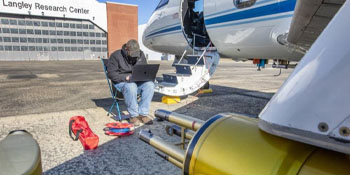
Taking Flight to Study Clouds
Chemical and environmental engineering professor Armin Sorooshian is leading a $30 million NASA mission to investigate aerosol-cloud interactions over the western Atlantic Ocean. The team’s work aims to improve the accuracy of short- and long-term climate models.
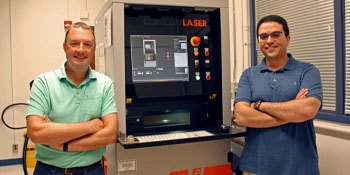
Ensuring Accuracy in 3D-Printed Jet Engine Parts
With $750,000 from NASA, Mohammed Shafae of systems and industrial engineering and Andrew Wessman of materials science and engineering are developing a process for mitigating and preventing defects in additively manufactured metal components used in extreme environments.
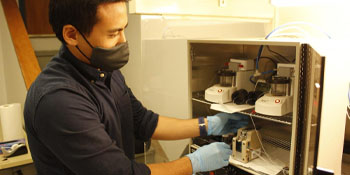
Filling the Spaces in Solar Cells
Electrical and computer engineering professor Raymond Kostuk has created a holographic system that boosts the efficiency of solar panels. It has the potential to make solar panels 5% more efficient, which is enough extra electricity to power more than 175,000 homes a year.
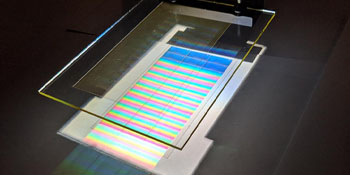
Detecting Water Contaminants
Chemical and environmental engineering researcher Suchol Savagatrup is developing liquid sensors to detect harmful substances in water. The portable system, which detects a number of contaminants, can be used in the field.
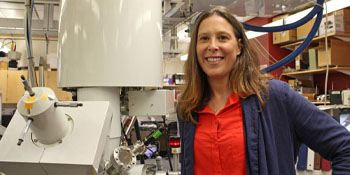
Replacing Blood Samples With Sweat
Erin Ratcliff is working with a team of researchers and physicians to create tools for collecting and analyzing biomarkers in human sweat. Ultimately, their work could mean using sweat samples as an alternative to blood samples for monitoring patient health.
Connecting capabilities to the most pressing needs on Earth, and beyond

Featured Initiatives
Building Smart Cities
Four Engineering professors are among researchers working on smart cities, shared mobility, connected vehicles and driverless cars. Larry Head, UA professor of systems and industrial engineering, is creating a smart platform for connected vehicles and traffic signals.Integrating Renewable Energy
UA researchers like Kimberly Ogden – a professor of chemical and environmental engineering who is cultivating algae for fuel – are focused on reliably integrating renewable energy into the grid and developing technology for energy conversion and storage.Research Centers and Institutes
The college leads and partners in a number of high-profile centers, institutes, labs and facilities on campus. Many involve collaboration with industry, other universities and government agencies. Below are some of them.
Arizona Center for Accelerated Biomedical Innovation
The ACABI is aimed at developing novel solutions to the broad range of continuously emerging unsolved problems and unmet needs in health care, well care and overall individual well-being, in the rapidly evolving world and society in which we live.
Director: Marvin J. Slepian
520.626.8414
Arizona Materials Laboratory
The AML hosts a large array of equipment needed for research in
materials science and engineering. This equipment is also available to the scientific community and industry.
Director: Pierre Deymier
520.621.6080
Arizona Research Institute for Solar Energy
AzRISE is a response to the challenge of planning for large-scale, affordable solar energy power generation and
training the workforce that will make the transition possible. Research goals include identifying, funding and
coordinating Arizona-specific solar energy research opportunities, developing intellectual property and
promoting development and widespread adoption of solar energy.
Director: Kelly Simmons Potter
520.626.0525
Arizona Research Center for Hypersonics
The University of Arizona is a global leader in the field of hypersonics. Ideally situated in the heart of aerospace and defense industry, the institution boasts a unique array of resources, laboratories and world-renowned researchers, dedicated to breaking new ground and pushing the boundaries of what is possible.
Contact: David Hahn
Broadband Wireless Access and Applications Center
BWAC researchers are
developing technology and standards to overcome challenges associated with user access and spectrum ability to
support the tremendous growth in wireless data traffic.
Director: Marwan Krunz
520.621.8731
Center for Applied Transportation Sciences (CATS)
The Center for Applied Transportation Sciences in the College of Engineering at the University of Arizona works with partnering agencies and institutions on research and education in transportation systems management and operations, and performance management, as well as mobility on demand. Additionally, the center prepares students for jobs involving development of multimodal transportation systems.
Director: Yao-Jan Wu
Center for Quantum Networks
CQN is laying the foundations of the quantum internet, as part of a $26M grant from the National Science Foundation, with an additional $24.6 million option. The University of Arizona is leading the center with core partners Harvard University, the Massachusetts Institute of Technology and Yale University.
Director: Saikat Guha
520.621.7595
Center to Stream Healthcare In Place
C2SHIP is a National Science Foundation Engineering Research Center led by the University of Arizona in partnership with Baylor College of Medicine, University of Southern California and Caltech. Its mission is to engage academic and industrial partners in developing in-place health care technologies and help establish healthcare equity. In addition to researching the design and manufacture of wearable sensors, the team is also developing machine learning models to extract meaningful information from these sensors and display it for care providers and patients.
Director: Janet Meiling Roveda
Co-directors: Kathleen Melde, Hao Xin and Ao Li
Lowell Institute for Mineral Resources
Recognizing that the sustainable development of mineral resources is fundamental to the prosperity of the United
States in the next century, the
Lowell Institute fosters and expands the USGS-university-private partnerships to undertake mineral
resource scientific research and inventories.
Co-director: Mark Barton
520.621.8529Co-director: Mary Poulton
520.621.8391
Nano Fabrication and Processing Center
Several advanced research projects are underway in the Nano
Fabrication and Processing laboratory, including research projects supported by the
National Science Foundation, Sematech, and private sponsors. The Center for Micro Contamination Control and the
Center for Benign Semiconductor Manufacturing also conduct major research in the laboratory.
Director: Omid Mahdavi
520.621.9849
New Frontiers of Sound (NewFoS) Science & Technology Center
NewFoS research focuses on the application of the emerging field of topological acoustics to a wide variety of research areas. Topological acoustics allows researchers to observe and exploit properties of sound that were previously invisible, similar to viewing the field with a fresh set of eyes—or, better yet, listening to it with a new pair of ears.
Director: Pierre A. Deymier
NSF/UA Cloud and Autonomic Computing Center
CAC’s research is
focused on cloud computing systems and applications and the use of autonomic computing methods for the
management of these and other IT systems.
Co-director: Salim Hariri
520.621.4278Co-director: Ali Akoglu
520.626.5149
SRC Engineering Research Center for Environmentally Benign Semiconductor
Manufacturing
Work in the SRC Engineering Research Center focuses on studies in the
areas of ultrapure water, water recycling, plasma processes, wet chemicals, chemical-mechanical polishing and
risk assessment to reduce the environmental impact of semiconductor manufacturing.
Director: Farhang Shadman
520.621.6051
Superconducting Quantum Materials and Systems Center
Led by the U.S. Department of Energy's Fermilab, this $115M project boasts three University of Arizona engineers. The SQMS Center combines the theoretical and experimental expertise of individual research groups to advance long-term success of quantum technologies.
Bane Vasić
520.626.5550
Zheshen Zhang
520.621.6075



